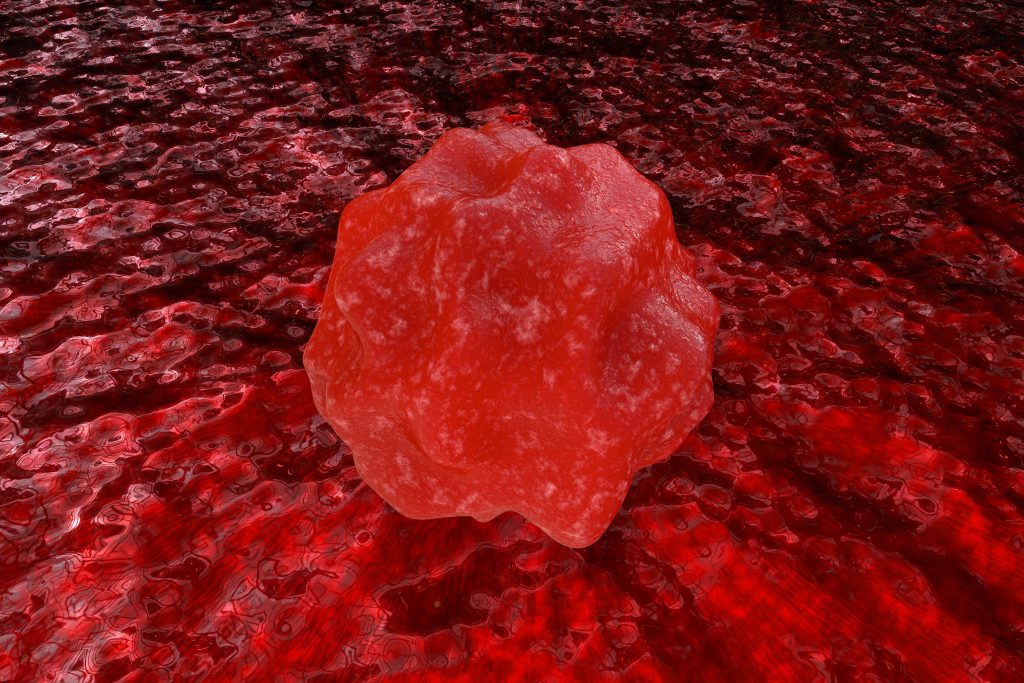Advances in cancer therapy: drug destroyed cancerous tumors in as many as 7 out of 10 cases
Promising cancer drug to be tested on humans
Cancer is a dangerous disease affecting more and more people worldwide. Researchers have now found that injecting minute amounts of two immunostimulating drugs into tumors in mice results in complete elimination of cancer. The injection used will now be tested on human subjects and then brought to market as quickly as possible.
Researchers at Stanford University School of Medicine found that tumors in mice could be killed by injection. Research on human subjects is now to follow, in the hope that the drug can be made available to patients in the near future.

Side effects are unlikely
The novel treatment is able to kill tumors in mice. It removes all traces of cancer in the examined animals. This approach works for many different types of cancer, including those that arise spontaneously, explain the physicians. The researchers speculate that local application of very small amounts of the agents could serve as a rapid and relatively inexpensive cancer treatment. Side effects are very unlikely in this type of treatment. If both remedies were used together, tumors were eliminated throughout the body, explains Ronald Levy of the Stanford University School of Medicine.
What are induced pluripotent stem cells?
So-called induced pluripotent stem cells or iPS cells are a key element of regenerative medicine. Outside the body, they can be developed into many different types of cells and tissues, which can then help repair possible damage due to trauma or disease . The iPS cells could be reused in the future because they should train the immune system to attack tumors or even prevent the development of the tumors. The results of the current study suggest that one day it might be possible to vaccinate an individual with their own iPS cells to protect it against the development of many types of cancer .
What effect induced pluripotent stem cells?
The iPS cells are part of the tested vaccine. They have strong immunogenic properties that produce a system-wide, cancer-specific immune response, the experts explain. This approach has exciting clinical potential to treat cancer. The iPS cells work as an anti-cancer vaccine because they are free of the growth restrictions that normally occur in mature cells that make up our body tissues. The introduction of iPS cells that are genetically identical to the recipient but unable to replicate allows the immune system to better attack cancer. iPS cells resemble tumor cells on their surface. Joseph Wu from the Cardiovascular Institute of Stanford University.
How were the iPS cells made?
To make the iPS cells, researchers take cell samples from an easily accessible source such as skin or blood. The cells are then treated with a set of genes that cause them to put their development clock back pluripotent, explain the scientists. This allows the cells to develop into almost any tissue in the body. A key factor in pluripotency is the ability of cells to form a tumor called teratoma, which consists of many different cell types after the cells have been injected into animals.
How do cancer cells work?
So-called iPS cells used in regenerative medical therapies are grown in the presence of other proteins to encourage them to specialize or differentiate into specific cell populations before they are then used clinically. It has long been recognized that cancer cells reflect many features of developmentally immature cells. As part of their cancer transformation, they often lose the naturally occurring mechanisms that serve to block inappropriate cell division, the researchers say. Instead, they start to multiply rapidly.

Experiments were performed on mice
In their study, the doctors examined four groups of mice. One group was injected with a control solution, one group received genetically matched iPS cells previously irradiated. Thus, in this group, the formation of teratomas should be prevented. A third group received a general immunostimulating agent known as adjuvant. The last group received a combination of irradiated iPS cells and an adjuvant. All animals were given such an injection once a week for a period of four weeks. Finally, the mice were transplanted with a breast cancer cell line to study the potential growth of tumors.
Tumor size shrank in seven out of ten animals
One week after transplant, it was already established that all mice developed tumors of the breast cancer cells at the injection site. Although the tumors grew robust in the control groups, their size shrank in seven out of ten mice vaccinated with iPS cells plus adjuvant. Two of these mice were able to completely eliminate the breast cancer cells and these animals lived for over a year after tumor transplantation. Similar results were noted when the researchers transplanted a mouse melanoma and mesothelioma cell line (a type of lung cancer) into the mice.
Drug could prevent cancer months or years later
The researchers now want to investigate whether the approach also works in samples of human cancer cells and immune cells in the laboratory. If successful, the vaccine could be given to humans in the future to prevent the development of cancer months or years later. Alternatively, the iPS cells could potentially be used as part of the adjuvant treatment standard after primary surgery (chemotherapy or radiotherapy). They could also be used as immunotherapy to treat established cancers, the researchers hope.